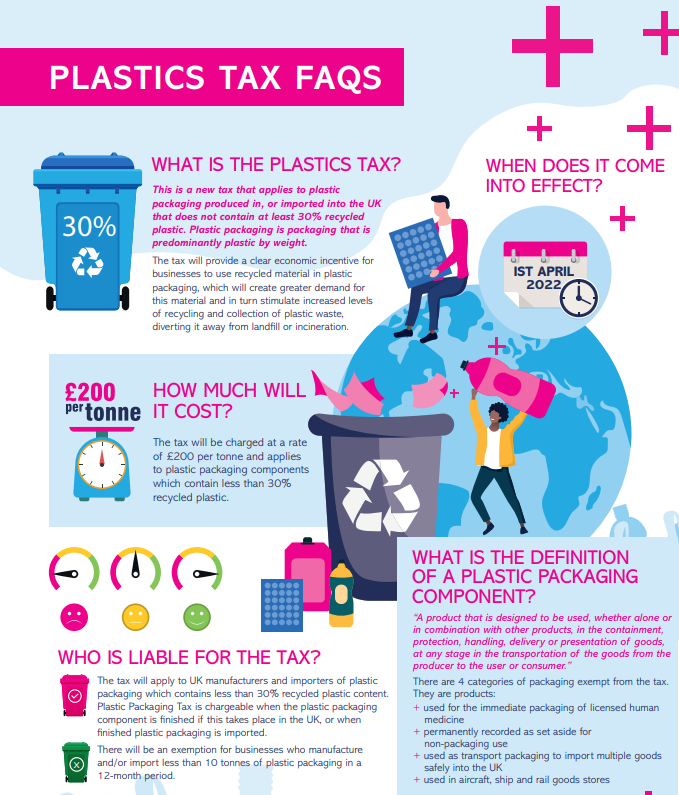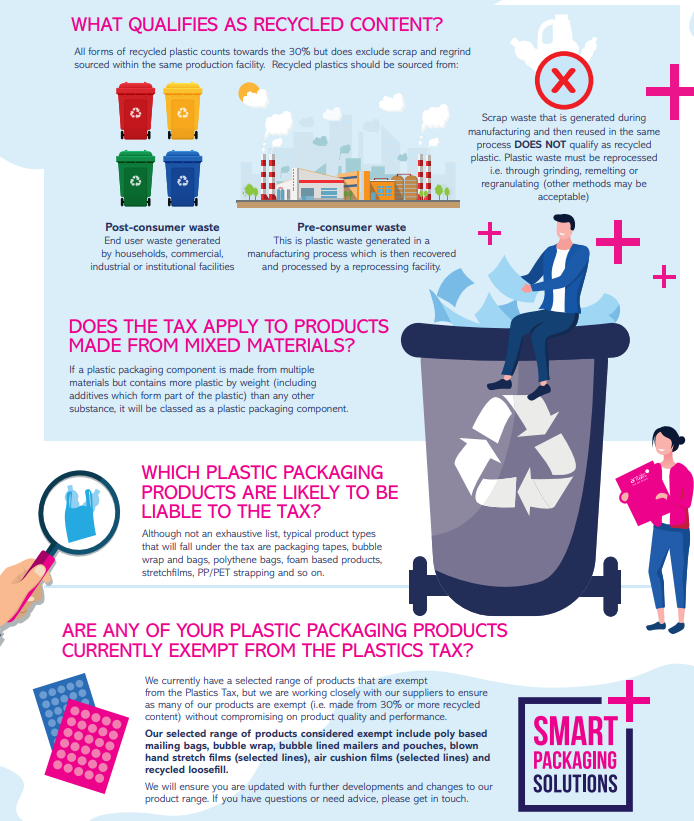The New Plastic Packaging Tax Explained
HMRC have introduced a new tax on plastic packaging that contains less than 30% recycled content

When did the new plastic packaging tax take effect & what is it?
What Falls Under the Plastics Tax?
The NPPT applies to plastic packaging that dominates the packaging's weight, both produced within and imported into the UK. Items like bubble wrap, polythene bags, stretch films, and packaging tapes fall under this tax category.
Packaging Components Under Scrutiny
A product intended for the containment, protection, handling, delivery, or display of goods, at any stage during transportation from producer to end-user, is classified as a plastic packaging component subject to the NPPT.
Exemptions to the Plastics Tax
- Products used for the immediate packaging of licensed human medicine
- Permanently recorded as set aside for non-packaging use
- Used as transport packaging to import multiple goods safely into the UK
- Used in aircraft, ship and rail goods stores
The Significance of the New Tax
The NPPT holds significant importance in promoting a circular economy and reducing plastic waste. By incentivising businesses to utilise recycled materials, the tax contributes to higher levels of recycling and plastic waste collection, ultimately reducing landfill waste.
Current Exempt Products
Some packaging products are already exempt from the tax, such as poly-based mailing bags, bubble-lined mailers and pouches, and recycled loose-fill packaging. Manufacturers are actively introducing additional products with a minimum of 30% recycled content, without compromising on performance or quality.
Embracing the New Era of Sustainable Packaging
The New Plastic Packaging Tax marks a turning point for businesses to prioritise eco-friendly practices. By opting for recycled materials and adopting sustainable packaging solutions, companies can not only meet regulatory requirements but also demonstrate their commitment to a greener future. Let's pave the way for sustainable packaging and create a cleaner environment for generations to come.




